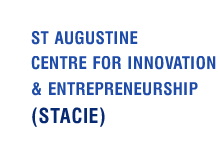Peptide copper catalysts capable of oxidizing hydrocarbons at room temperature
Inventors: Gurdial Singh, Latisha Candice Nicholas-Lewis
PROBLEM
Natural resources are rapidly depleting which prioritizes the need to access alternative fuels such as methanol. Methanol is used in numerous chemical intermediates used to manufacture many products. Hence, the chemical oxidation of petroleum and natural gas hydrocarbons to alternative fuels and useful chemical intermediates would be a process of great industrial value affecting global energy use and the worldwide economy. However, current oxidative transformations of hydrocarbons are inefficient or costly. The high bond energy of the C-H bond renders hydrocarbons unreactive to chemical transformations, and therefore is a major problem in the oxidation of petroleum and natural gas hydrocarbons. A useful approach to overcome current challenges in alternative fuel and useful chemical intermediate production, is the development of efficient and cheap methods that oxidize unreactive hydrocarbons such as methane and ethane, using catalysts. However, these transformations require high temperature and pressure, as well as using high concentrations of sulphuric acid. Furthermore, industrial application is hindered by poor catalytic turnover rendering the transformations inefficient.
SOLUTION
A desirable approach to the catalytic oxidation of unreactive hydrocarbons is a method that is conducted at ambient temperature and pressure, using accessible reagents such as water and oxygen. This invention overcomes the problems of the past and provides a novel method for the catalytic oxidation of hydrocarbons using peptide copper catalysts.
APPLICATION
- To oxidise hydrocarbons at room temperature for alternative fuel production.
ADVANTAGES
- Greater efficiency
- Lower Cost
- Higher yield
- Can be produced at room temperature using readily accessible reagents
INTELLECTUAL PROPERTY
- US utility patent granted
Synthesis and Use of Chiral Ionic Liquids.








